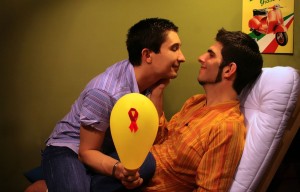Psychosexual dysfunctions in Italy
The story of Italian society reconciling its history and values with psychosexual dysfunctions that are antithetical to its honorable reputation is most fascinating. In 1970, Academy Award winning director Bernardo Bertolucci directed The Conformist. The film deals with Marcello Clerici, an Italian whose homosexuality creates a pathological obsession to be vindicated by overzealously supporting the supposed tradition and order represented by the fascist movement of Mussolini. Many Italians flatter themselves by considering their land as the cradle of not just European culture, but of the rest of the world. Ancient Italian civilizations, such as the Romans, and its contribution to architecture, philosophy, warfare, politics, and art remain the basis of civilizations. Much like the protagonist in The Conformist, Italy has long been trying to reconcile the imperfection that psychosexual dysfunctions are viewed to represent with its perception as being an infallible nation cultivated on tradition, order, and culture. As a result of this discrepancy between imagery and reality, the acceptance and diagnosis of psychosexual dysfunctions in Italy has been slow because it conflicts with the Italian ideal.

In a 2006 survey conducted by the Italian daily newspaper Corriere della Sera (Evening Courier), 87.8% of Italians identified themselves as Roman Catholic. It is impossible to discuss psychosexual dysfunctions on a societal level in Italy without discussing the institutional importance of the Catholic Church. Though the processes of globalization, demographic shifts, and state-level secularization have all contributed to the weakened political influence of the Church, the role of religious values on Italian societies understanding of psychosexuality cannot be disputed. For centuries, the Church’s moral righteousness and condemnations were more influential than any government policy. Indeed, the Church influenced government. Even under fascism, despite his absolute dictatorship, Benito Mussolini tried to foster a good relationship with the Church – including allowing the creation of a papal state in the Vatican – as he realized that they monopolized spirituality in Italy. For almost 50 years following the establishment of a democratic government in 1946, the Christian-democratic party known as Christian Democracy dominated before corruption and loss of public confidence led to its demise.
It was particularly in the post-World War II that the Catholic Church’s monopolization of political sexual policies was marginalized. With the development of civil society in a democratic Italy, peer group conversations and the mass media offered new sources of sexual knowledge. Sexual education was adopted as part of the regular program of primary and secondary school even though Catholics rejected it on the grounds that this form of education often ignored sexualities moral context. Divorce became legal in Italy only in 1970. Additionally, an interesting pattern has developed in the past three decades: divorce rates are significantly higher in the northern more industrialized parts of the country over the more rural and traditional south. According to a study by the Italian National Institute of Statistics, there were 6.2 separations and four divorces for every 1,000 marriages in the north in 2005 against 4.2 separations and 1.8 divorces in the south. Compared to their European counterparts, these statistics are relatively low reflecting the personal moral failure assigned by the Church to divorce. Furthermore, pornography and masturbation are increasingly being openly discussed and engaged in Italian society, particularly the youth, suggesting that the moral authority of the Church has been significantly weakened with new institutions. So, what commentary does this offer on the psychosexual dysfunctions of Italians? A lot.
Contemporary psychology subcategorizes psychosexual disorders into three parts: sexual dysfunctions, sexual perversions, and gender identity disorders. The difficulty in discussing psychosexual dysfunctions from the Italian context is that they have historically been defined by the attitudes towards male and female sexuality in a traditional society. From a medical perspective, sexual dysfunctions are characterized as a disturbance in sexual desire or arousal. However, as discussed, throughout its history, what are today viewed to be as normal sexual behavior, such as masturbation, were assigned such immoral value by tradition that engaging in them was a sexual dysfunction.
[ad#downcont]The most common real psychosexual dysfunction reported by Italians is suffering libido. Among men, common psychosexual problems include premature ejaculation and erectile dysfunctions which, in recent decades, has contributed to the tremendous growth of the pharmaceutical industry. By contrast, in Italian women the highest incidence of psychosexual dysfunction is painful intercourse and suffering libido. While there may be a medical explanation for these dysfunctions, most of the time they are rooted in the psychological. Causes of psychosexual dysfunctions vary, from anxieties, stress, guilt, or depression. In a culture that has assigned such strong moral meaning to the need to preserve marriage and repress sexuality, it comes as unsurprising that despite the institutions best intentions to espouse certain morality, psychosexual dysfunctions may be conceived as a direct reaction.
It was in post-World War II 1948 that the first Italian family advisory agency was opened in Milan by Don Paolo Liggeri. It sought to reconcile the traditional Italian values with a more engaging approach to sexuality. Importantly, it focused on psychotherapies to understand and confront psychosexual problems. It is unfair to shift the blame of Catholic values as being the source of Italian psychosexual dysfunctions. Even in non-Catholic societies and non-Catholic Italians, psychosexual dysfunctions exist. Societal stresses that are removed from faith play an important part. It was not the Church’s misdoing for Italians not to be willing to engage and discuss their problems and thus worsening the symptoms. But, history and tradition in Italians tries to not concern itself with psychosexual dysfunctions. This denial has created an environment that is not as honest and open that they pride themselves to be.
